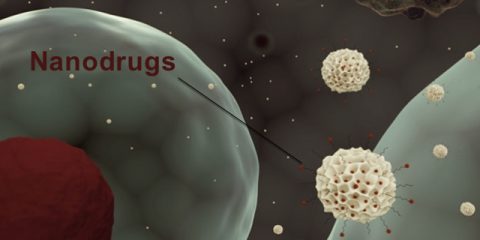In a nutshell This study aimed to investigate the use of the 'mini-sling' surgery during placement of penile prosthesis for the treatment of urinary incontinence and climacturia (urine leaking during sexual intercourse) in men with erectile dysfunction after prostate cancer treatment. This study found that this procedure is promising for these...
Read MoreProstate cancer Posts on Medivizor
Evaluating image-guided irreversible electroporation of localized prostate cancer
In a nutshell This study aimed to evaluate the use of irreversible electroporation (IRE) in the treatment of prostate cancer. This study found that IRE had low side-effect rates and promising outcomes. Some background Irreversible electroporation (IRE) uses high-energy pulses of electricity to destroy cancer cells. The brand name for...
Read MoreWhat is the risk for bladder and rectal cancer in patients previously treated for localized prostate cancer?
In a nutshell This study investigated the rate of bladder cancer (BC) and rectal cancer (RC) after localized prostate cancer (PC) treatment. They found that brachytherapy (BT) increased the risk of BC and RC in these patients. Some background Prostate cancer (PC) is a common cancer in men. There are many treatment options for PC. Some involve...
Read MoreRisk of treatment related toxicity from radiation therapy on prostate and lymph nodes vs prostate and prostate only
In a nutshell This article investigated the toxicity of intensity-modulated radiation therapy (IMRT) to the prostate and pelvic lymph nodes (PPLN-IMRT) compared with prostate-only (PO-IMRT) in high-risk prostate cancer (PC). The authors concluded that both treatments had similar toxicity rates in these patients. Some background...
Read MoreSalvage high-intensity focused ultrasound for locally recurrent prostate cancer after brachytherapy
In a nutshell This article investigated the safety and effectiveness of salvage high-intensity focused ultrasound (S-HIFU) in patients with locally recurrent prostate cancer (LRPC; cancer which has come back and is confined to the prostate gland) after treatment with low dose rate brachytherapy (BT). The authors concluded that S-HIFU is...
Read MoreNanodrugs
Nanodrugs have been around for some time. In fact, over 250 drugs using nanotechnology that have been approved by the FDA and are in clinical use. The name nanodrug or nanopharmaceuticals refers to the size of the particle that is created to house the medication. A nano is very tiny: nanoparticles are between 1 and 100 nanometers in at least one of its...
Read MoreSurvival after radiotherapy vs. prostate surgery for intermediate-risk prostate cancer.
In a nutshell This study aimed to investigate the outcomes of intermediate risk-risk prostate cancer after different treatments. This study concluded that prostate surgery might have a higher survival than radiotherapy. Some background There a several options to treat intermediate-risk prostate cancer (IR-PC). Radical prostatectomy (RP; surgery to...
Read MoreSearching for patients with metastatic castration resistant prostate cancer to test a targeted therapy option
In a nutshell This phase 2 trial is examining the effectiveness and safety of trametinib (Mekinist) in patients with metastatic castration-resistant prostate cancer (mCRPC; prostate cancer which has spread from its original place to another area in the body and keeps growing even when the amount of testosterone in the body...
Read MoreSearching for patients with prostate cancer to test this new treatment combination
In a nutshell This phase 2 trial is examining the effectiveness and safety of navarixin (MK-7123) in combination with pembrolizumab (Keytruda) in patients with castration-resistant prostate cancer (CRPC; cancer that progresses after hormonal therapy). The main outcome to be measured will be the objective response rate (ORR; tumor shrinkage or...
Read MoreRisk of further cancers after radiotherapy or surgery for localized prostate cancer
In a nutshell This article investigated the risk of new primary (cancer that does not originate in another organ) cancers after treatment with carbon ion radiotherapy (CIRT), photon radiotherapy (PRT) or surgery for localized prostate cancer (PC). The authors concluded that CIRT is associated with a lower risk of new primary cancers vs...
Read MoreNerve grafting to restore erectile function after radical prostatectomy
In a nutshell This article investigated the safety and efficacy of end-to-side nerve grafting surgery (NGS) in patients with erectile dysfunction (ED) after prostate surgery. The authors concluded that NGS was a safe and effective treatment option for these patients. Some background Radical prostatectomy (RP) is surgery to remove the prostate....
Read MoreRecovery of urinary function in elderly men vs younger men undergoing robot-assisted prostate surgery for aggressive prostate cancer
In a nutshell This article investigated urinary function in elderly vs younger men following robot-assisted radical prostatectomy (RARP) for aggressive prostate cancer (PC). The authors concluded that regardless of age, there was an improvement in urinary function after the surgery. Some background Aggressive prostate cancer is commonly...
Read More









